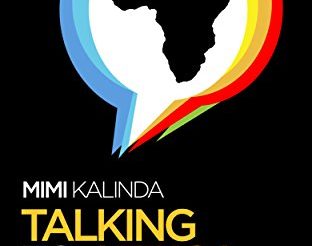Innovation Vital To Africa’s DNA – But So Is Strategic Communication

Public Relations and Communications Exert and author of Talking to Africa, Mimi Kalinda outlines the crucial role marketing and communications play in highlighting Africa’s change makers.
‘The key driver in turning these creative ideas into prototypes and tangible outcomes is strategic communications. Once the rest of the world sees Africa’s potential through a positive lens, investment and support is likely to follow.’
 Innovation is a critical part Africa’s DNA, but it only plays a part in shaping the continent’s narrative when the world becomes aware of it. This is where tactical communication is paramount in disseminating information about the continent’s progress, so that the right people join the journey in supporting and investing in innovation.
Innovation is a critical part Africa’s DNA, but it only plays a part in shaping the continent’s narrative when the world becomes aware of it. This is where tactical communication is paramount in disseminating information about the continent’s progress, so that the right people join the journey in supporting and investing in innovation.
The underlying concept of communicating to the right audience requires an understanding of Africa’s dynamics – coupled with a strategic approach that encompasses not only smart ideas and effective planning, but also a combination of traditional and digital media expertise. As the communication landscape evolves rapidly, strategic communication means keeping a watchful eye on the way your audience consumes information and the channels they utilize.
Let’s look at The African Innovation Summit (AIS), held in Kigali, Rwanda in June, for example. It showcased potential solutions to Africa’s challenges in water, energy, food and healthcare. Young innovators from across the continent identified problems in their communities and came up with ways to fix them.
Developing and delivering compelling communications
What followed was genius. A compelling communications strategy was developed and effectively delivered. It entailed a three-step approach from pre-summit to post summit and this method involved telling the stories of each innovator in a way that would inspire audiences to action. The hope was to enhance the African narrative and change the poor perception of its youth.
With media and business in attendance at the event, the summit highlighted detailed information about innovations that, with the right funding and support, could change Africa’s outlook in the future. The key driver in turning these creative ideas into prototypes and tangible outcomes is strategic communications. Once the rest of the world sees Africa’s potential through a positive lens, investment and support is likely to follow.
The approach taken at the AIS is the kind of communication businesses should adopt to reach the desired audience on a global scale so that the right kind of funding is attracted. A summit is just one way of achieving this.
Africa has been innovating for centuries, but it has evolved over time and what we see now is in tune with the ‘Africa rising’ narrative. Through strategic communication, these new smart innovations are changing perceptions about what Africans are capable of and challenging the notion of how Africa solves its own problems instead of being recipients of aid.
Young Africans are creating their own solutions to problems in their communities, highlighting the resilience of Africa’s people while putting a spotlight on the effectiveness and formidability of strategic communications coupled with innovation. This indeed is Africa Rising.
 Co-Founder and CEO of the Africommunications Group (ACG), a pan-African public relations and communications agency based in Johannesburg, South Africa, Mimi authored Talking to Africa, which is also the title of her weekly podcast on Africa Business Radio. A former Director of Communications for the African Institute for Mathematical Sciences, Mimi was the first African woman to host a show on MTV Europe, and is the recipient of the One World Media Award for Rien Que La Verite, a television program advocating the prevention of HIV/AIDS and an end to violence against women in the DRC. She sits on the Africa Brand Counsel, and is the Rebranding Africa Champion for Africa 2.0. She was a finalist for International African Woman of the Year at the Women4Africa Awards 2016. Her first book, Talking to Africa: Considering Culture in Communications for a Complex Continent, was released in January 2017.
Co-Founder and CEO of the Africommunications Group (ACG), a pan-African public relations and communications agency based in Johannesburg, South Africa, Mimi authored Talking to Africa, which is also the title of her weekly podcast on Africa Business Radio. A former Director of Communications for the African Institute for Mathematical Sciences, Mimi was the first African woman to host a show on MTV Europe, and is the recipient of the One World Media Award for Rien Que La Verite, a television program advocating the prevention of HIV/AIDS and an end to violence against women in the DRC. She sits on the Africa Brand Counsel, and is the Rebranding Africa Champion for Africa 2.0. She was a finalist for International African Woman of the Year at the Women4Africa Awards 2016. Her first book, Talking to Africa: Considering Culture in Communications for a Complex Continent, was released in January 2017.
